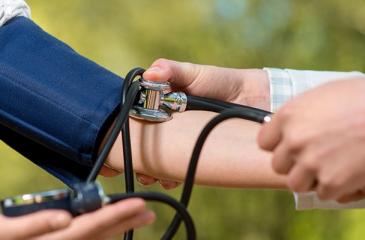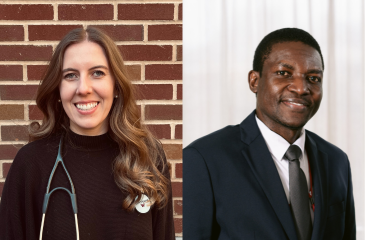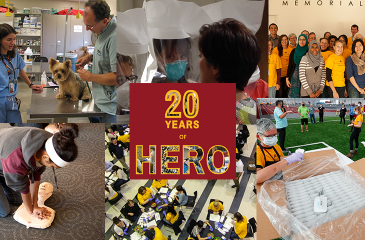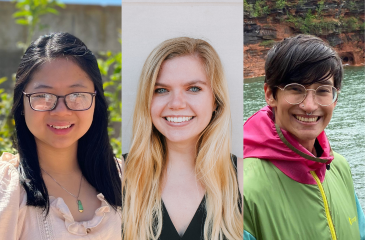Opeyemi (Opy) Adesida’s interest in mobile health stems back to her time spent as a physician in Nigeria, where she worked with state free health missions on mobile pop-up clinics and events focused on providing preventive care and screening to vulnerable populations.
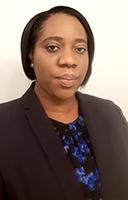
“I saw firsthand the importance of mobilizing health care and decreasing barriers to address economic disadvantages and health disparities,” she said.
After earning her master’s in public health from the University of Minnesota and working in local city and county health departments, Adesida recently joined the University to oversee the operations and delivery of mobile health care services for the Community-University Health Care Center and the University’s mobile health initiative, UMN HELPS (Health Equity through Local Partnerships and Service).
As the mobile health program director, she will help identify and enlist key community partners to reinforce and establish strategic relationships that address specific outreach care needs of the most vulnerable and underserved populations. According to Adesida, partnerships with community organizations will help provide whole-person care and link patients to already existing resources that can contribute to significant improvement in health outcomes.
“Mobilizing medical care closer to vulnerable patients in a setting they are familiar with reduces some of the social, physical and economic barriers to access care, making health more equitable,” she said. “By providing testing, preventive and culturally-appropriate care and services, we can improve the health status of seasonal migrant workers and their families.”
Adesida says the success of this work will be measured by services provided that are focused on expanding reach to underserved communities and by mitigating barriers to accessing care. The impact will be assessed by the number of people that the clinic reaches to avoid costly emergency visits and hospitalizations. Another goal is to increase engagement in virtual services and telemonitoring to connect with patients and monitor health outcomes.
“A typical day at work is busy, challenging, educative and fulfilling,” she said. “I enjoy the ability to work independently and also be productive as part of an interprofessional team with great work ethic.”
Adesida's position is supported through a partnership with the Abbott Fund, the foundation of the global healthcare company Abbott, which has a significant presence in the Twin Cities. The Abbott Fund-CUHCC partnership focuses on advancing health equity, including expanding access to COVID-19 testing and primary care for underserved populations, optimizing CUHCC's virtual clinic visit model, and enhancing the monitoring and management of diabetes and heart disease – chronic diseases that are key risk factors for complications with COVID-19.
